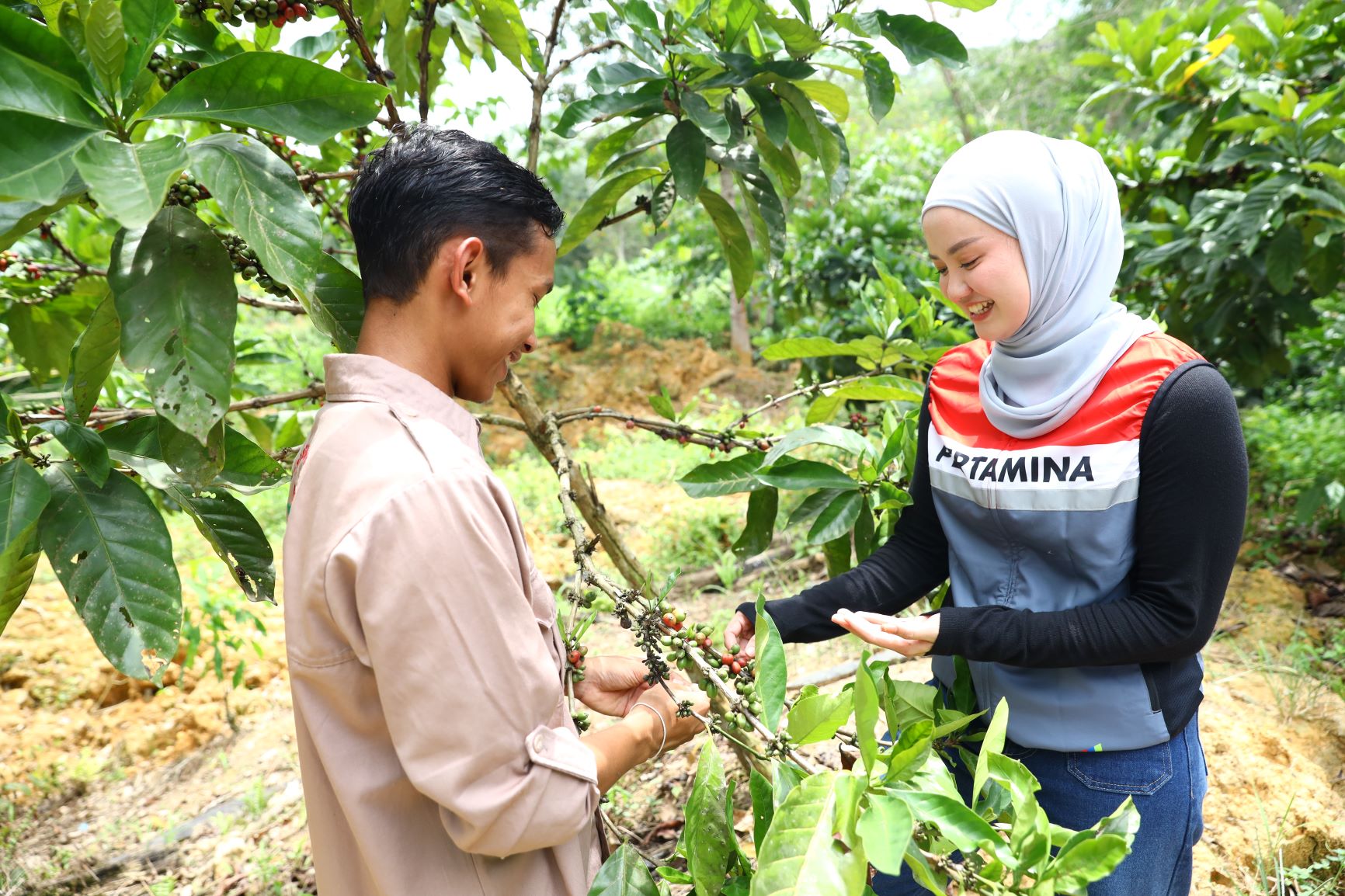04
Dec

Marangkayu – As one of the subsidiaries of PT Pertamina Hulu Indonesia (PHI), PT Pertamina Hulu East Kalimantan Northern Operation Area (PHKT-DOBU) has remained committed to innovation and the sustainable development of Kapak Prabu as a part of its CSR programs since its inception.
Kapak Prabu, located in Prangat Baru Village, Marangkayu District, Kutai Kartanegara Regency, East Kalimantan Province, has been undergoing development since 2020 and has recently transitioned into an ecological village.
Dharma Saputra, Head of Communication, Relations, & CID (CRC) at PHKT Zona 10, highlighted anticipating a more significant social and economic impact through this ecological village concept. "Our implementation of the ecological village concept aims not only for the community to relish the products of Liberika Coffee and Luwak Coffee but also to educate them—from the seeding procedures to coffee preparation, including the conservation of civets, kelulut bees, and other practices. Naturally, all these processes execute with a paramount focus on environmentally friendly principles," he explained.
Regarding the program's growing benefits, Rindoni, the Chair of Kapak Prabu Farmers Group, shared that by 2022, the group had successfully planted 29,000 Liberika Coffee seedlings across 30 hectares of land. Apart from Rindoni, 34 other farmers from the Kapak Prabu group manage this land. "Presently, residents from neighboring villages, South Prangat Village and Makarti Village, have embraced Liberika Coffee cultivation in their areas," he added.
In the journey to establish an ecological village, PHKT consistently provides assistance and development to Kapak Prabu, focusing not only on coffee but also on environmentally friendly technology, conservation efforts, and tourism. "Thanks to the support from PHKT, many guests, including representatives from various institutions and universities at local, national, and international levels, have visited and studied Kapak Prabu over the years," noted Rindoni.
Dony Indrawan, Manager of Communication Relations & CID at PHI, emphasized PHI's commitment, along with its subsidiaries, to bolster the capacity and self-sufficiency of all associated communities through ongoing support and capacity-building initiatives. "We prioritize community development, emphasizing institutional development within the groups to ensure sustained welfare for our partnered communities. We continue to collaborate and discuss the Kapak Prabu program's development to maximize its community-wide benefits," he said.
PHI, through PHKT, continues its various CSR programs supporting community development and self-sustainability, aligning with the pursuit of Sustainable Development Goals (SDGs). "In addition to support, we provide coffee roasting equipment and install solar panels in coffee production houses to foster innovative economic activities and promote green energy," added Dony.
The Kapak Prabu Program has provided economic value and contributed to the absorption of 266.5 tons of CO2 and the release of 416 tons of O² equivalent gas through environmentally sustainable practices.
The journey of the Kapak Prabu Program began with cooperation between PHKT Santan Terminal, which provided biogreening compost fertilizer aid to the Prangat Baru Village Coffee Farmers Group. Biogreening utilizes non-B3 kitchen waste materials sourced from the catering services at Santan Terminal. This collaboration has expanded into the only Liberika Coffee and Luwak Coffee cultivation in East Kalimantan. As time passed, Kapak Prabu's potential evolved into an ecotourism village, indicated by the formation of a Kelompok Sadar Wisata (Pokdarwis) in Prangat Baru Village.
Since the launch of the Kapak Prabu program, the local community's perception of civets has evolved. Initially deemed as pests consuming local chickens, the community now acknowledges the importance of civet conservation due to their mutual relationship and the high economic value derived from the coffee beans they consume," concluded Dony.
PT Pertamina Hulu East Kalimantan (PHKT) is a subsidiary of PHI that manages upstream oil and gas operations and business by Environment, Social, and Governance (ESG) principles in the East Kalimantan & Attaka Working Area in East Kalimantan. PHKT, with other PHI subsidiaries and affiliates, continues to carry out various innovations and technological applications in producing safe, efficient, reliable, compliant, and environmentally friendly energy to realize #EnergiKalimantanUntukIndonesia. More information about PHI is available at https://phi.pertamina.com.